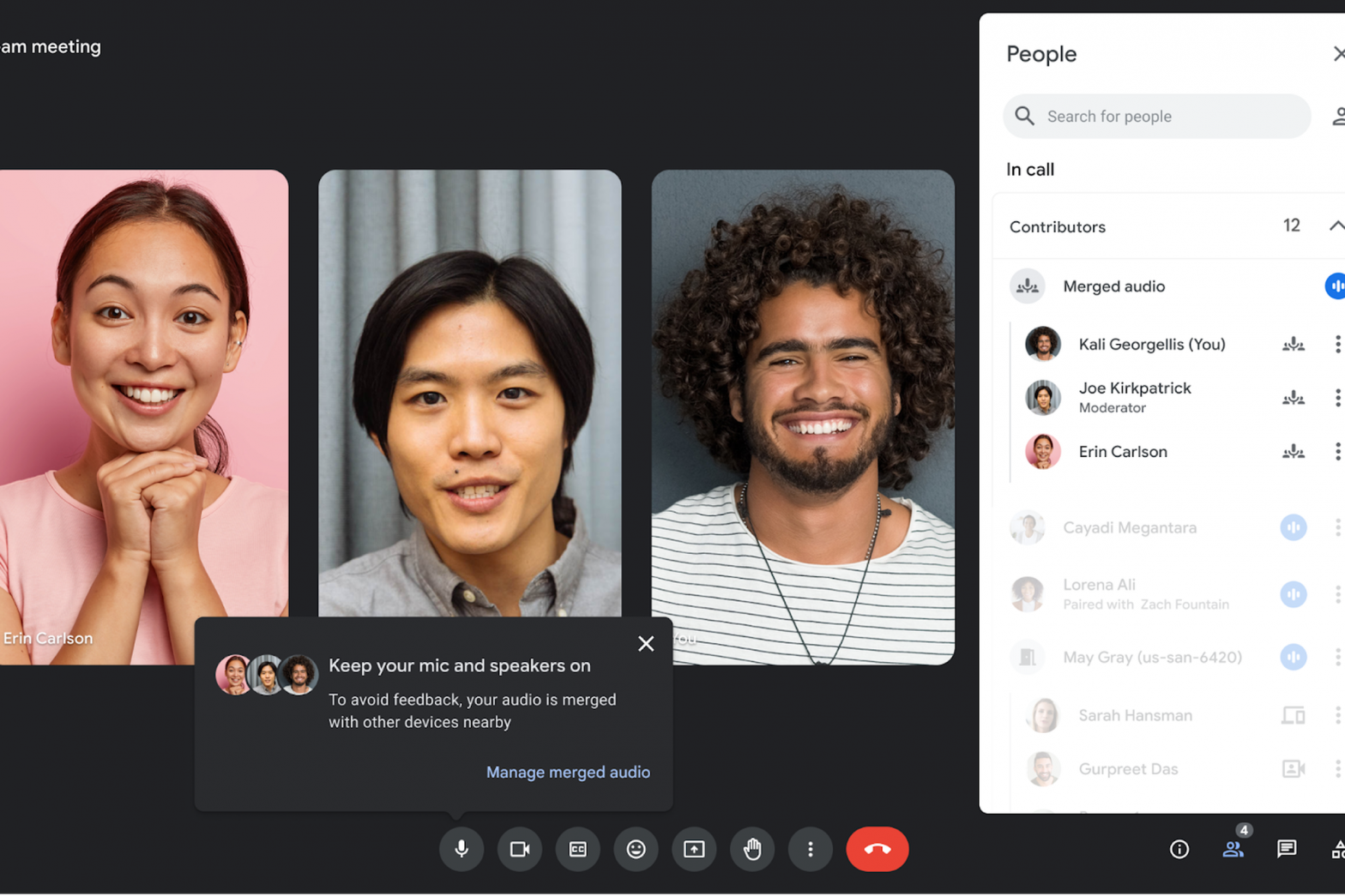/
If your conference room mic isn’t working, Google Meet can try syncing up the microphones and speakers of every laptop in the room.
Share this story
:format(webp)/cdn.vox-cdn.com/uploads/chorus_asset/file/25460254/googleadaptiveaudio.jpg)
Google has introduced “adaptive audio,” a new Google Meet feature that offers Google Workspace users an alternative to dedicated videoconferencing equipment — if their package includes access to new AI features.
Once it’s rolled out, Google Meet will be able to automatically detect multiple laptops in the same room and merge together their speakers and microphones. The idea is that it will allow multiple participants to be heard clearly without needing to huddle around a single laptop while also reducing echoes and audio feedback.
:no_upscale():format(webp)/cdn.vox-cdn.com/uploads/chorus_asset/file/25460533/google_meet_adaptive_audio.gif)
According to Google, this feature should benefit small organizations and other teams who might not have the dedicated equipment available or if the equipment is experiencing technical difficulties. It should also give teams more flexibility in choosing meeting locations so they can meet in, say, cafés or lounges when a conference room isn’t available.
Google says it will gradually roll out the feature over the next few weeks to “Google Workspace customers with the Gemini Enterprise, Gemini Business, Gemini Education, Gemini Education Premium, and the AI Meetings and Messaging add-on.”
Once rolled out, the feature will be turned on by default, though users have the option of manually turning it off.
Announced during the Google Next event last month, adaptive audio is just one of the many new features coming to Google Workspace. During Google I/O, Google announced it’s adding the new Gemini 1.5 Pro to the right sidebar in Workspace apps like Google Docs, Sheets, Slides, Drive, and Gmail to more seamlessly connect them all. The company also introduced Google Chip, a new capability that lets users ask an AI agent questions about meetings, emails, and other work-related tasks.
